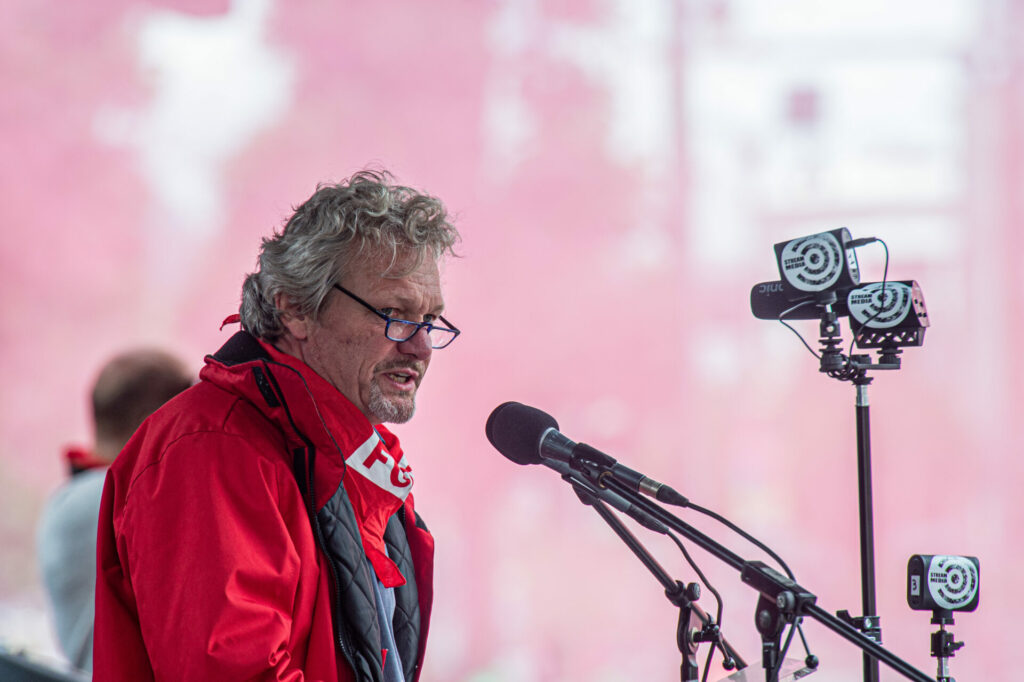The General Labour Federation of Belgium (FGTB), the second-largest trade union in Belgium, announced after its federal committee on Tuesday that they will be organising another general strike during the week of 7 November.
The President of the FGTB, Thierry Bodson, hardened his tone against the government and called for a national strike on 7 November. Bodson also announced that another rally will also be organised during the week of 19 September in Brussels.
After the 20 June demonstration, which brought together 80,000 people in the streets of the capital, the socialist union wants to continue putting pressure on the Belgian government over the cost of living crisis and the state of public services.
The main objective remains the reform of the Wage Norm Act 1996 on business competitiveness, which curbs wage increases in the public sector. At the very minimum, unions are trying to obtain an exception to it.
In mid-September, the FGTB also aims to present a list of demands as a union common front. It targets, among other things, the 1996 law, as reformed by the Michel government and which the De Croo government has not planned to review, the liberals being firmly opposed to it.
Related News
- Why are unions organising another national strike?
- National strike: Mass mobilisation turns Brussels green, red and blue
The welfare package is also in the line of sight, that is to say the budget planned to revalue social allowances and whose distribution is entrusted to the social partners. If they cannot agree, it is up to the government to regain control.
However, according to the FGTB, employers’ organisations have linked it to the negotiation of the Interprofessional Agreement (AIP). In other words, trade unions are not expecting an agreement by the scheduled deadline of September 15.
“We want to move quickly. With a demonstration on June 20 of at least 80,000 people, we needed to build on that,” said FGTB President Thierry Bodson.

